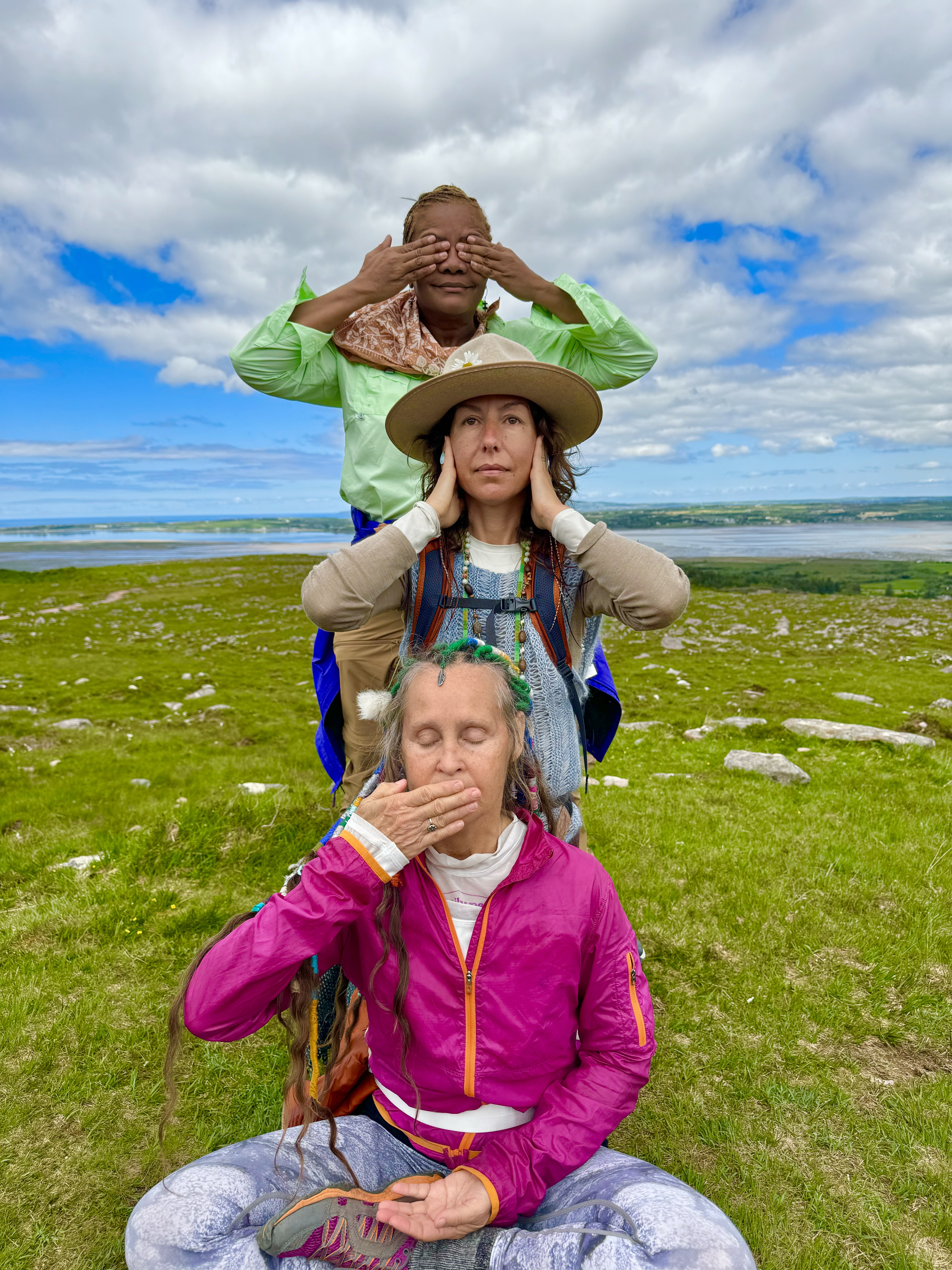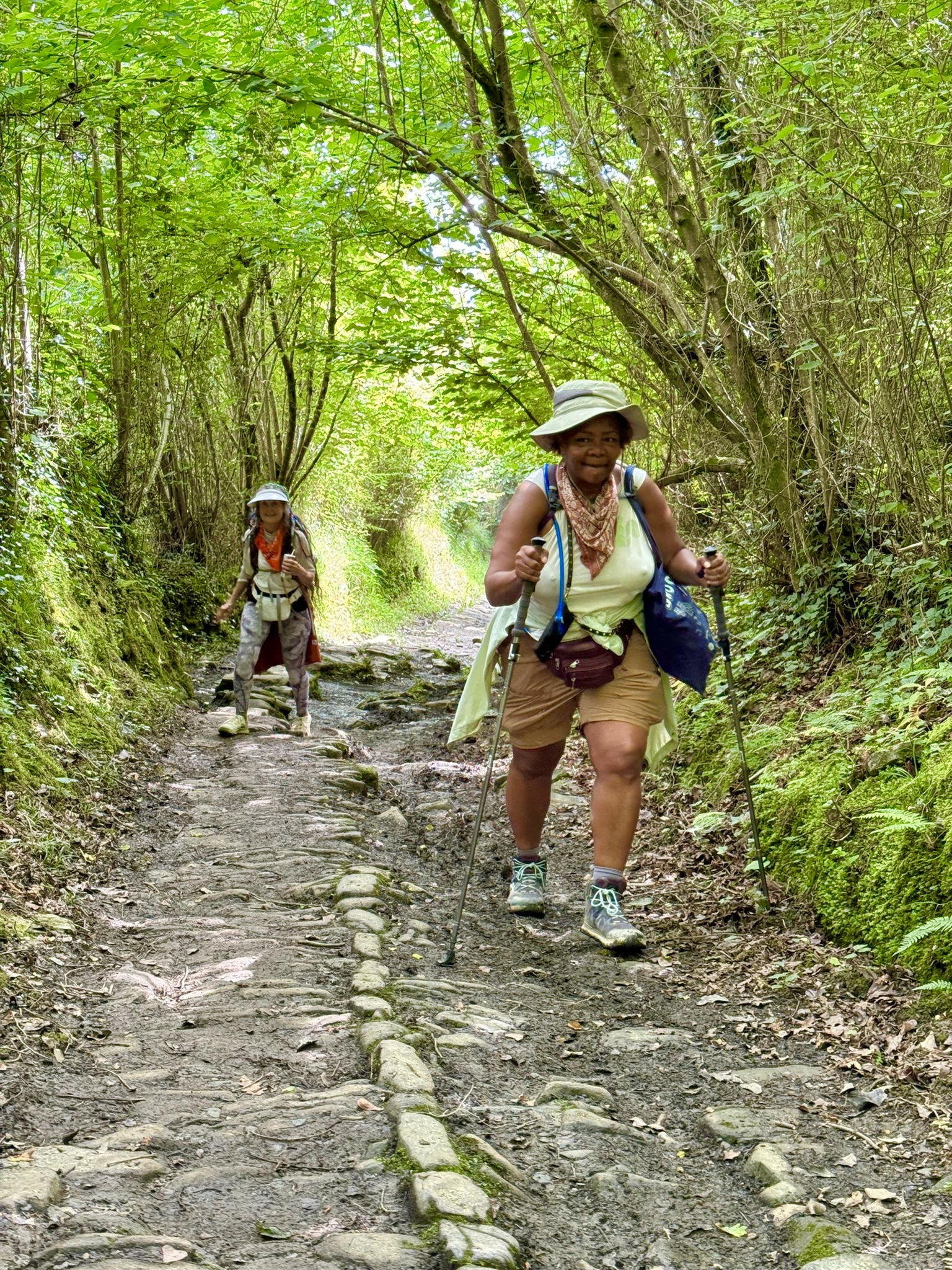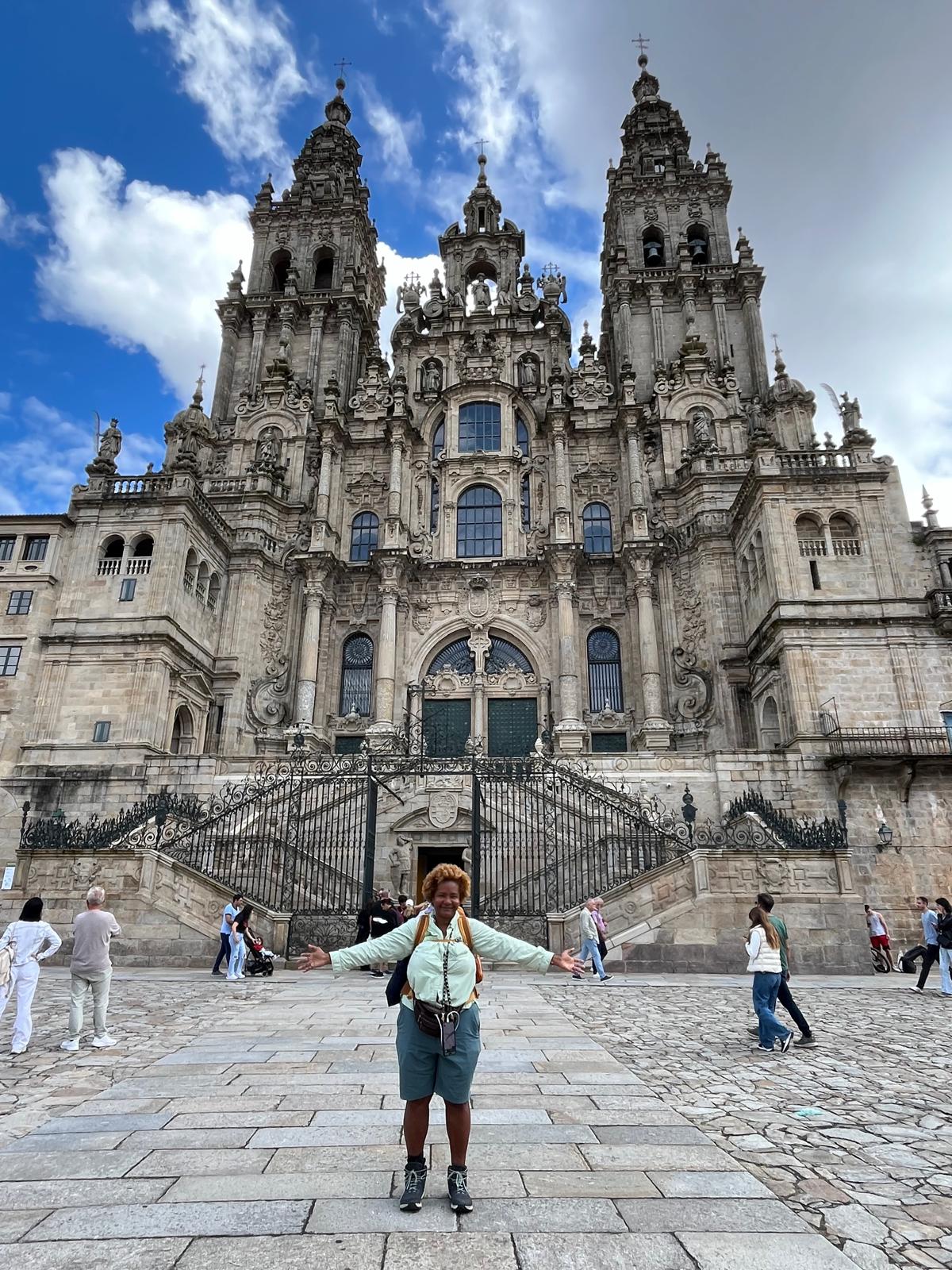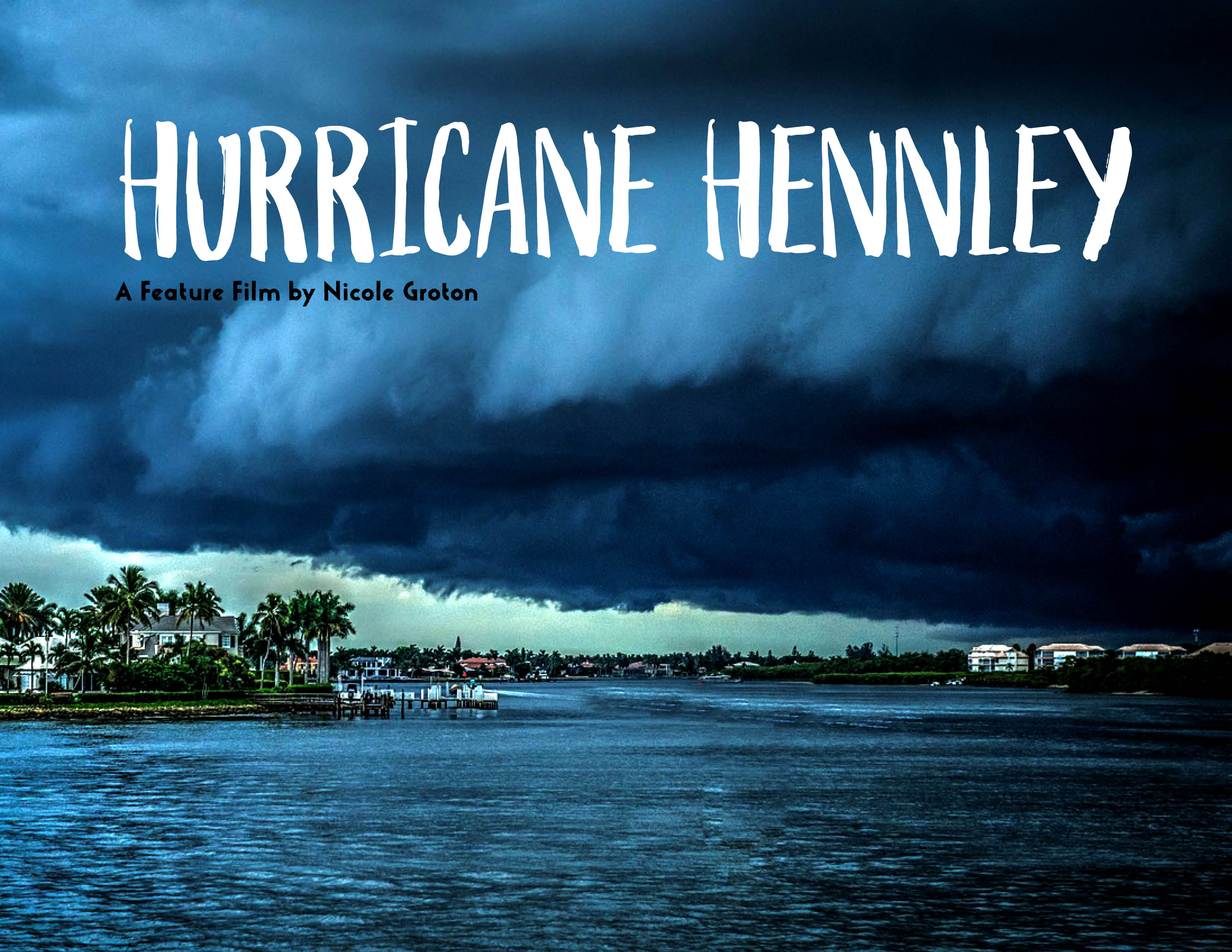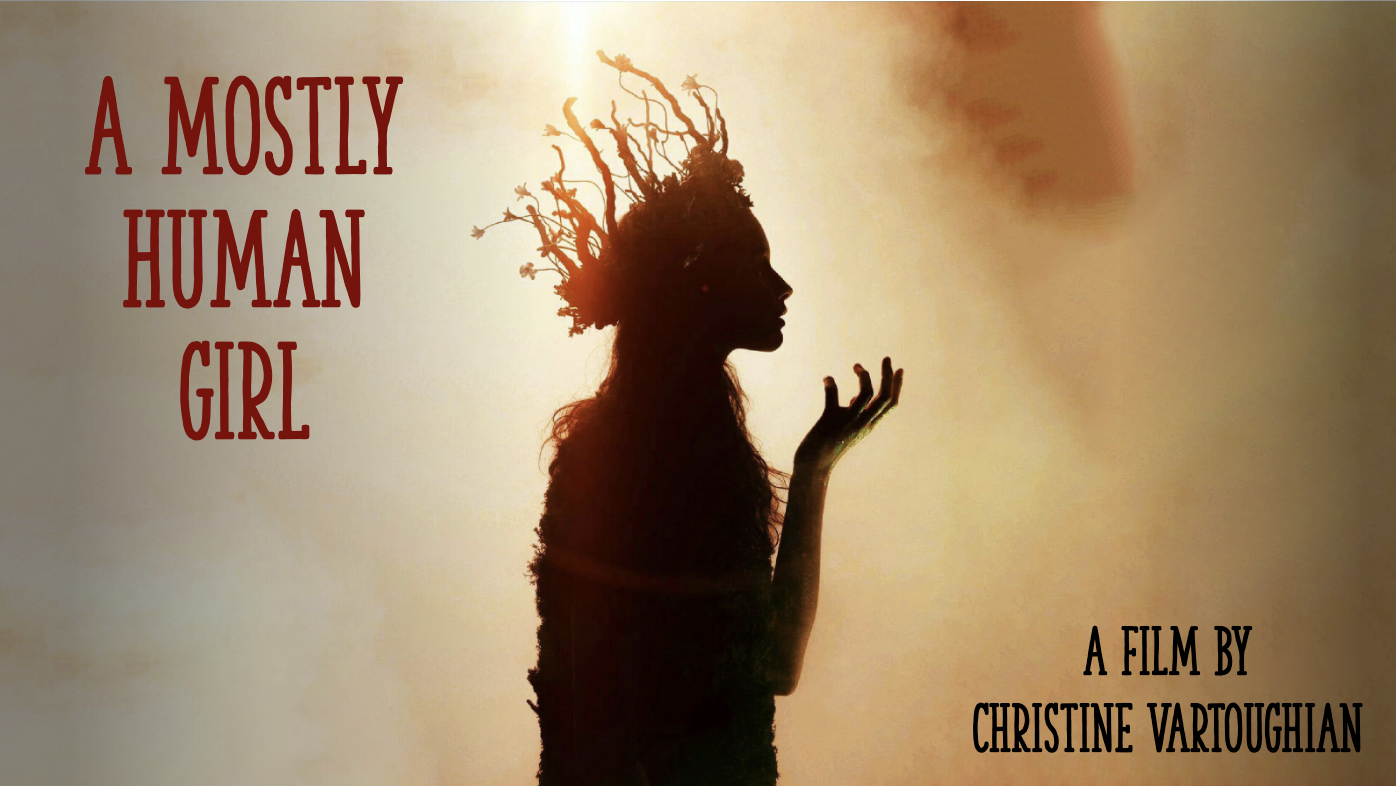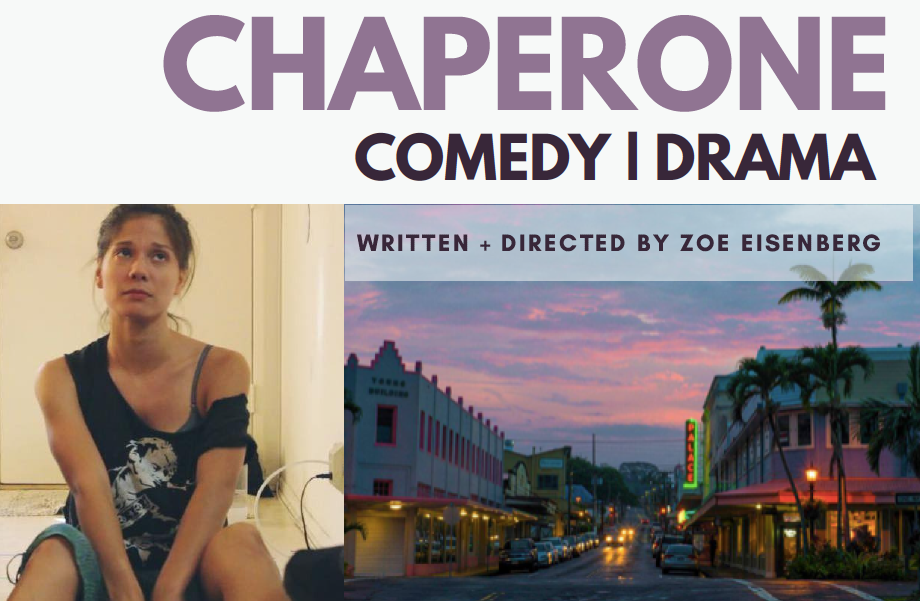Genre
Synopsis
UNSEEN & UNHEARD : A BLACK WOMAN'S CAMINO follows my personal journey along the famed Camino de Santiago, a pilgrimage renowned for its spiritual and transformative potential. As a Black woman, my experience was far from the idyllic tales often shared by pilgrims. Instead of the peace and enlightenment many seek, I found isolation, cultural dissonance, and a deep sense of being an outsider in a space that felt more exclusive than universal. Through my lens, this documentary challenges the prevailing narrative of the Camino and opens up a conversation about race, identity, and the meaning of pilgrimage in a world where many still feel unseen and unheard.
Main Participants:
Myself (Filmmaker and Pilgrim): The central figure of the story, I represent both the storyteller and the subject. I am a seasoned traveler, but my pilgrimage on the Camino de Santiago was fraught with emotional and physical challenges I didn’t expect. My personal reflections will guide the audience through my journey, emphasizing the moments where the romanticized ideal of the pilgrimage collided with harsh realities of racial and cultural alienation.
Fellow Pilgrims (Interviewees): Throughout my journey, I encountered a handful of fellow pilgrims, some of whom I remain in contact with. Their experiences offer a counterpoint to mine—some shared moments of solidarity, while others embody the cultural differences that made my Camino feel isolating. I plan to conduct interviews with these individuals, weaving their perspectives into the narrative to explore the contrasting ways the Camino can be experienced.
Locals (Interviewees): Some locals along the Camino provided brief moments of connection, offering insight into the culture and community around the pilgrimage. Their interviews will provide a broader context about the role the Camino plays in their lives and how they perceive travelers of different backgrounds.
Potential Plot Points:
Arrival and Expectations: The documentary opens with my arrival in Spain, with voiceovers expressing my excitement and expectation for spiritual growth. I reflect on how the Camino is often portrayed as a journey of self-discovery, a narrative I held onto as I began walking.
Early Realizations: Shortly after beginning the pilgrimage, moments of disconnection arise. From side glances to uncomfortable interactions with other pilgrims, I start to notice that my experience as a Black woman feels distinctly different from those around me. The footage captures these moments, juxtaposed against scenic landscapes and serene drone shots, emphasizing the contrast between the external beauty and internal discomfort.
Moments of Isolation: In this segment, I reflect on the emotional toll of being the "only one"—the only Black woman among groups of pilgrims. Drone footage shows me walking alone, highlighting a sense of physical and emotional isolation. Interviews with fellow pilgrims explore their perspectives on community and connection, subtly pointing out the privileges they might not realize.
Unexpected Challenges: While the Camino is physically demanding, the mental and emotional challenges often overshadow the physical. I begin to question the narrative of the Camino, wondering why my journey feels more like a test of endurance than a spiritual awakening. This segment will include reflections on the microaggressions, alienation, and culture shock I encountered, supported by interviews with locals who might not have understood my presence on the Camino.
Interviews with Fellow Pilgrims: Here, the voices of those I met along the way will be introduced. Their experiences, often positive or transformative, will contrast with my own. Some may have had similar feelings of disillusionment or connection, while others offer a view into the cultural lens through which they viewed the Camino. The conversations reveal how race, identity, and privilege inform one’s experience on the same physical path.
Resolution and Reflection: As the documentary draws to a close, I reflect on what the Camino truly offered me, not as a spiritual awakening, but as a confrontation with the realities of race and belonging in spaces designed for the “universal” pilgrim. The final scenes will showcase my decision to leave the pilgrimage earlier than expected, drone footage of the expansive path behind me, and personal reflections on what this experience revealed about the narrative of travel, race, and self-discovery.
Subject Matter and Primary Questions:
At its core, “Unseen and Unheard” is a film about identity, displacement, and the gap between the ideal and the real. The subject matter centers on how racial and cultural identity impacts one’s experience in a space traditionally depicted as inclusive and spiritually open.
Primary questions explored include:
How does being a Black woman shape the experience of walking the Camino de Santiago, a journey that is so often framed as transformative and universal?
What happens when the promises of spiritual enlightenment are met with emotional isolation and cultural dissonance?
How does race and privilege inform the way travelers experience spiritual or physically demanding journeys?
Can the Camino, or any pilgrimage, ever truly be a “universal” experience, or is that narrative a myth constructed by and for those who fit a particular identity mold?
Construction and Concept:
This documentary is character-driven but also conceptually focused on reframing the narrative of pilgrimage. My personal experience serves as the backbone of the film, while the interviews with fellow pilgrims and locals help to broaden the perspective and introduce contrast.
The film will be constructed through a combination of:
Personal narration and reflections: Providing intimate insights into my thoughts and emotional journey.
Interviews with fellow pilgrims and locals: Offering a range of perspectives on the Camino and how different people perceive their own experiences in relation to mine.
Footage captured along the journey: Drone shots, GoPro, and iPhone footage will highlight both the beauty and the solitude of the path, visually conveying the isolation I felt while also showcasing the majestic landscape of the Camino.
Bio
Tonya Pinkins is an American filmmaker, writer, producer, director. Her Award winning debut feature Film RED PILL was an official selection at the 2021 Pan African Film Festival, won the Best Black Lives Matter feature and Best First Feature at The Mykonos International Film Festival and Best First Feature at the Luléa Film Festival and is nominated for awards in numerous festivals around the globe. Her web-series The RED PILLING of AMERICA can be heard on her podcast “You Can’t Say That!” At BPN.fm/ycst As a television, film and theater actress she has appeared in nine Broadway shows including winning the Tony Award for Jelly’s Last and being nominated for the Tony Award for “Play ON” and Caroline or Change.”
Tonya has won or been nominated for the Olivier, OBIE, Drama Desk, Outer Critics Circle, Clarence Derwent, Audelco, NAACP Image, Soap Opera Digest, Monarch, Garland, Ovation, LA Drama Desk, Noel, NAAP theater and Audience Choice Awards. Her work is focused on delivering social justice, elevation of the sacred feminine issues in humorous and entertains ways to seed a better future for everyone.

